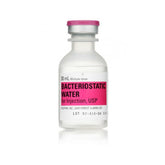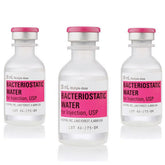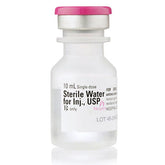Understanding the ins and outs of medical supplies is not just for healthcare professionals. Many of us may find ourselves in a position where we need to know more about these tools, whether we're caring for a loved one at home or managing our own health. Syringes are one such item that you may need to know about.
This practical guide aims to clarify some common questions about syringes, from their purchase and different types to how to select the right size and the regulations surrounding needles. With this knowledge, you can confidently navigate these tools to best support your health or the health of those in your care. So, let's dive in and demystify the world of syringes.
Can You Just Buy a Syringe?
If you've ever wondered whether you can simply walk into a store and purchase a syringe, you're not alone. The answer is not always straightforward and largely depends on your location. In many countries, including the United States, buying syringes without a prescription is legal. However, this can vary depending on state laws, and some places may require proof of medical necessity.
Pharmacies are the most common place to buy syringes, but online medical supply stores also offer a wide range of options. Some stores may have policies restricting the sale of syringes to certain individuals or quantities. While purchasing syringes is not illegal, it's crucial to understand and respect these policies, as well as the broader legal and ethical implications of syringe use.
The Three Types of Syringes
There are several types of syringes available on the market, but the three most common are the Luer Lock, Slip Tip, and Catheter Tip syringes.
-
Luer Lock Syringe: Named for its twist-on design, the Luer Lock syringe ensures a secure connection between the syringe and needle to prevent accidental removal or leakage of the fluid. This type of syringe is commonly used in medical settings where precision is vital.
-
Slip Tip Syringe: The Slip Tip syringe allows the needle to slip onto the end of the syringe. It's simple to use and suitable for a variety of applications, making it a popular choice for home use.
-
Catheter Tip Syringe: This syringe has a larger, tapered tip designed to fit into certain types of tubes or catheters. They are often used for cleaning wounds or supplying nutrition to patients who cannot eat by mouth.
Each type has its own specific uses and benefits, so the choice often depends on the specific need or application.
How to Choose a Syringe Size
Selecting the right syringe size is a crucial step to ensure accurate and safe administration of substances. Here's how syringe size is measured and what factors to consider:
Syringes are generally measured in milliliters (ml) or cubic centimeters (cc), with sizes ranging from 0.5 ml to 60 ml. The size you choose will depend on the following factors:
-
Purpose of the Syringe: Smaller syringes (1 ml to 10 ml) are often used for injections or administering medication to children, while larger sizes (20 ml to 60 ml) can be used for tasks such as flushing wounds or feeding patients with feeding tubes.
-
Volume of the Substance to be Administered: The amount of liquid or medication you need to administer will determine the size of the syringe.
-
Viscosity of the Substance to be Administered: Thicker substances may require a larger syringe size to administer properly.
The Most Common Syringe Size
The most commonly used syringe size is the 3 ml syringe. It offers a balance between volume and control, making it versatile for many different uses. This size is often used for administering medication, either orally or via injection, in both professional healthcare settings and at home.
The 3 ml syringe is not only popular because of its adaptability but also because its size makes it easy to handle. It's big enough to hold a useful amount of medication, yet small enough to be managed comfortably, even by those with limited dexterity.
Can You Buy Needles Over The Counter?
Just like syringes, the rules about purchasing needles can vary by location. In many places, you can buy needles over the counter without a prescription. However, some pharmacies or stores may have policies limiting the sale of needles, or require proof of medical necessity.
It's also important to remember that needles, like syringes, should be used responsibly. Proper disposal is crucial for safety, and sharing needles can lead to the spread of diseases. Always check with your local laws and regulations when purchasing needles, and follow guidelines for safe use and disposal.
Closing out
Understanding syringes and needles is not just for medical professionals. For those managing their health at home or caring for others, knowledge about different syringe types, how to choose the right size, and the rules around purchasing can be crucial.
It's always recommended to consult with a healthcare professional if you have questions about what type of syringe or needle is right for your situation.











